Crafting a Strategic Reputation Management Action Plan for Your Hotel Portfolio
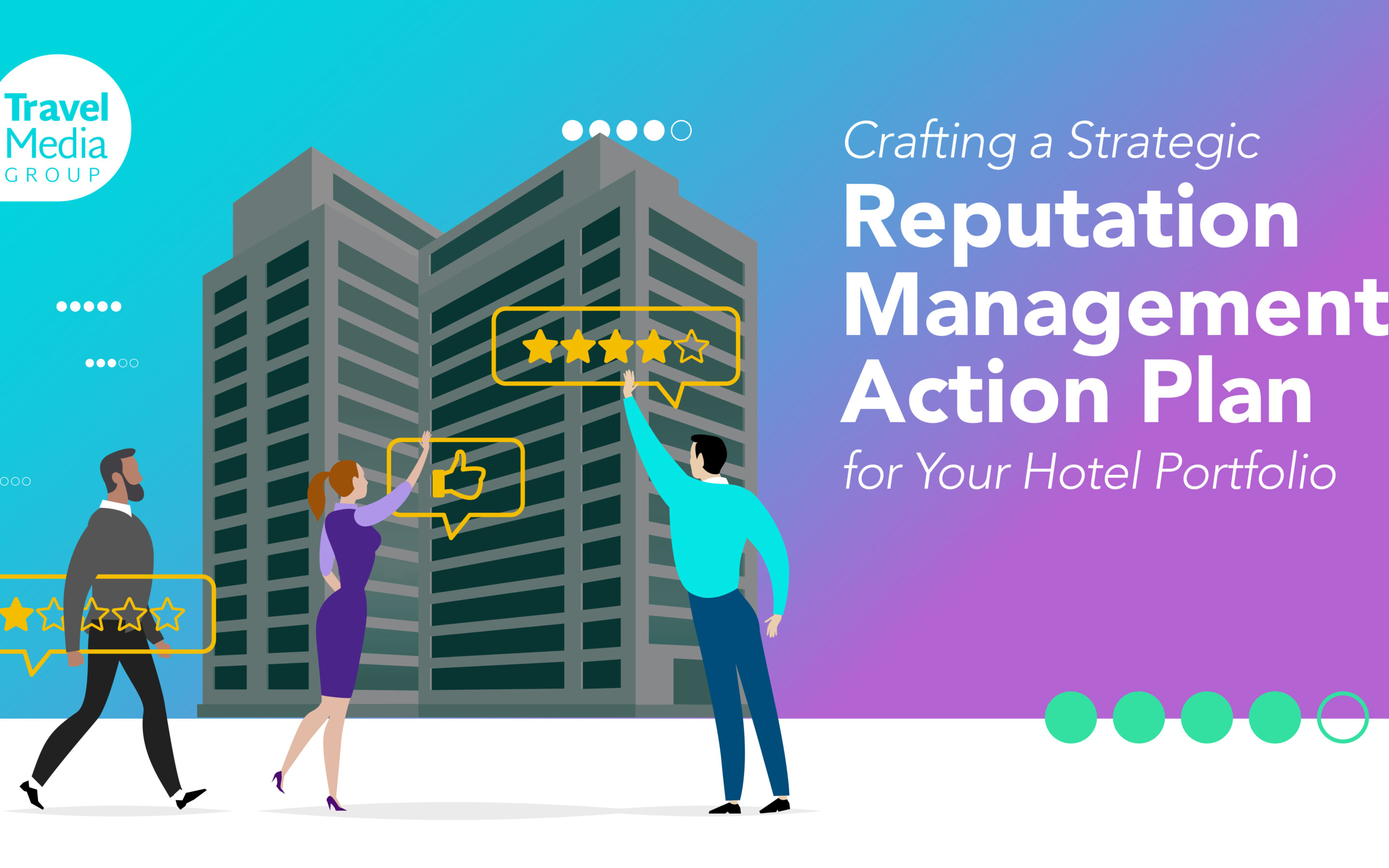
Hoteliers often ask if review responses and guest feedback are still important. The answer is, and will always be, yes. According to Accor’s Importance of Reviews and Reputation Report released in June 2024, 97% of online users read reviews at least some of the time before booking. It is also the #2 most important factor in traveler booking decisions.

But how has it changed over time? Online review sites have been around for a very long time, resulting in an increase in the number of reviews that hotels receive over time. A decade ago, it may have taken just a few months to move from a 3 to 4.5-star hotel. Now, it can take properties years to achieve this goal.
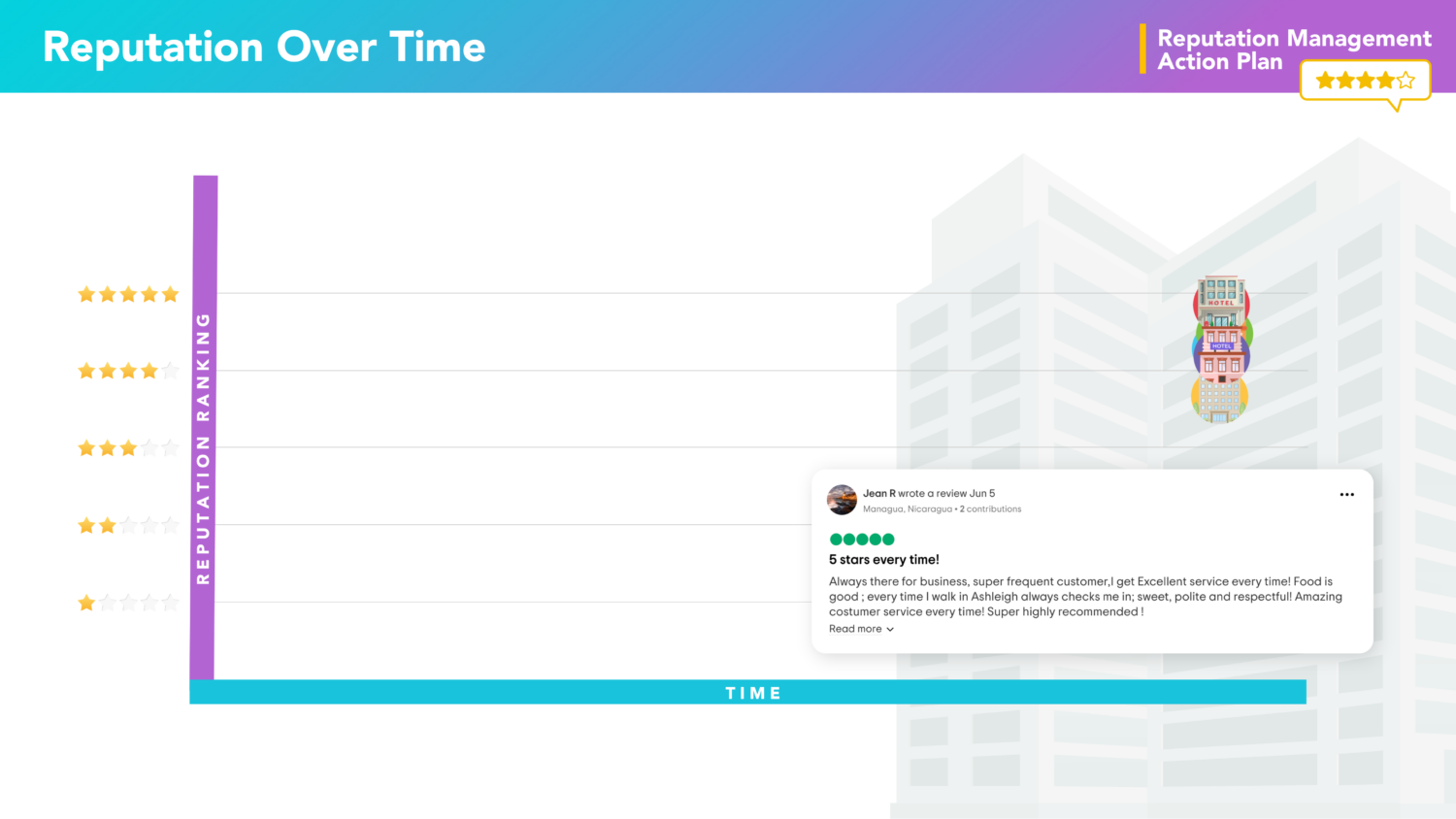
When looking at the local competition, 4-star properties are not competing with 2-star properties, and vice versa. This shows that things have gotten a lot closer within markets. Travelers are beginning to look at more recent and relevant information. This was a pitfall that many hoteliers fell into during the pandemic.

Post-pandemic, properties felt insulated within their 4-star reputation. For most properties, a lot changed across the board, including staff, amenities, service, etc. Travelers were looking at the most recent information, not the historical and lifetime scores anymore. One-in-five travelers would not look at reviews that are more than two months old. Some properties only receive 1-2 reviews in that span.
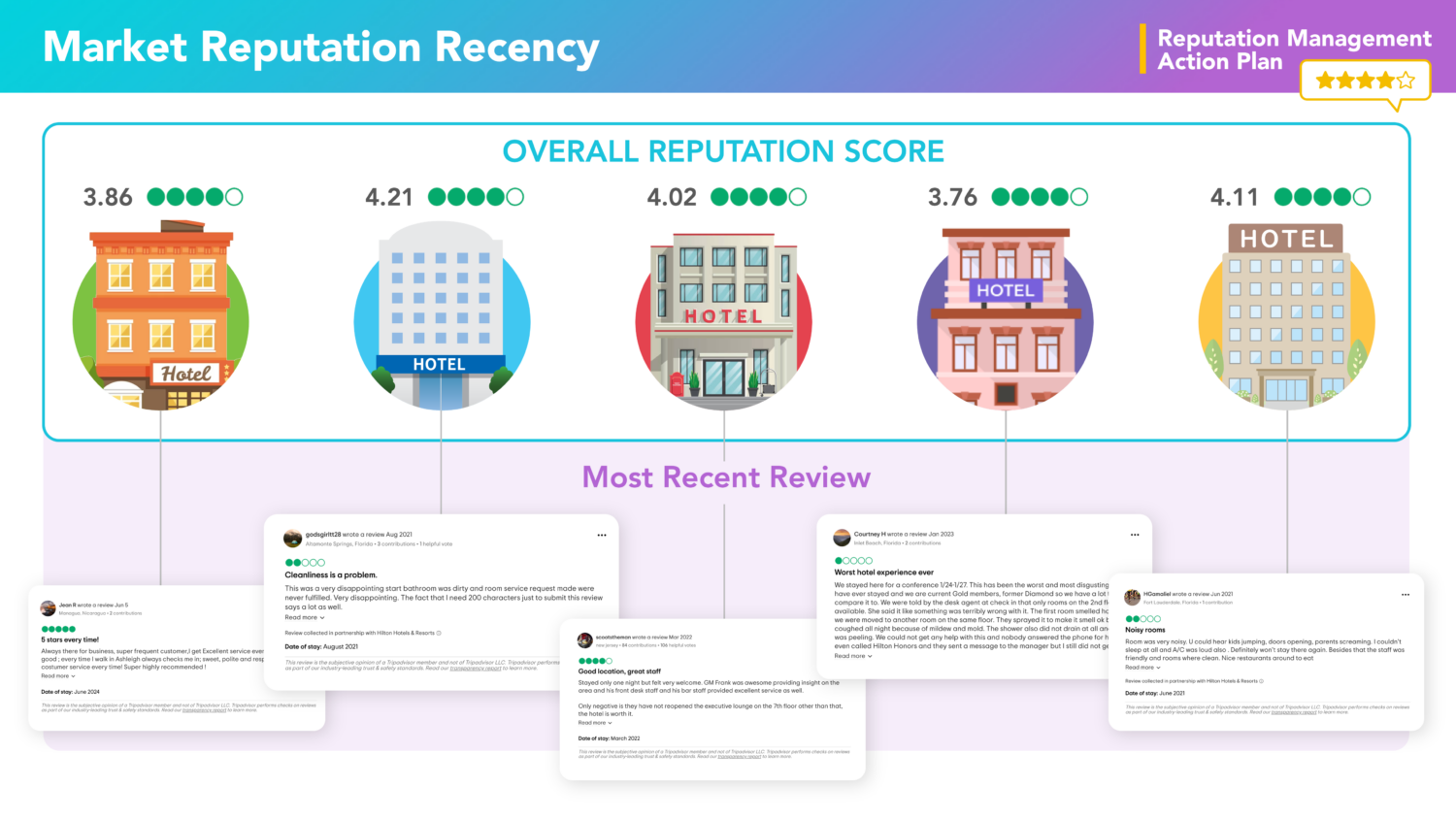
Although these overall review scores range from 3.76 to 4.21, the bubble score will appear the same on TripAdvisor (the most trusted review website). So again, what are travelers looking at? They are looking at the most recent information.
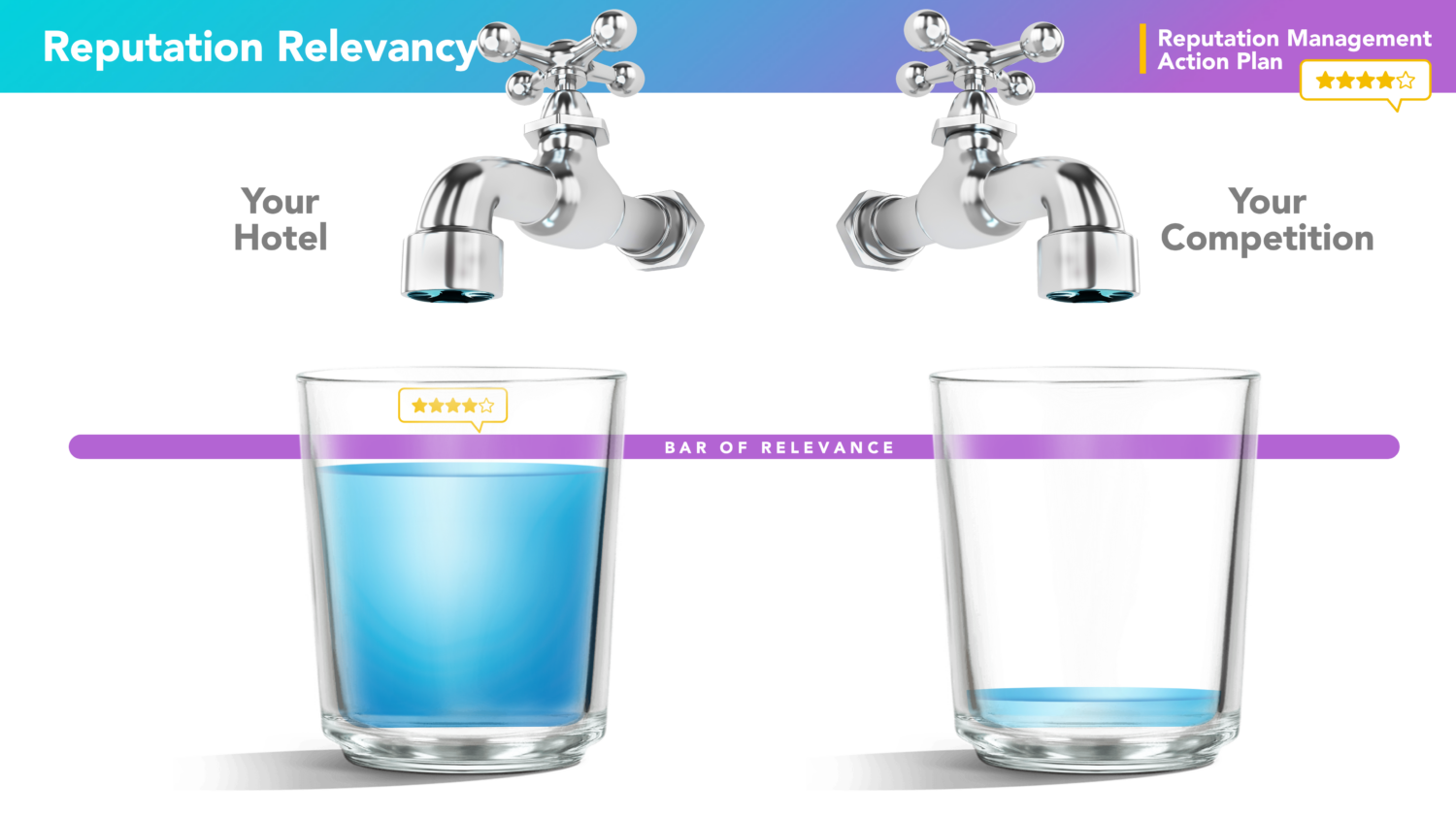
You may have a 4-star reputation on TripAdvisor and your last review may be a positive one. But, is it relevant? In order for a traveler to feel like the information is relevant, there has to be a constant flow of new information. If a user goes to booking.com and sees the last review was from a guest whose heater not working and the pool was closed, that won’t help them in the summer who was looking forward to escaping the heat.
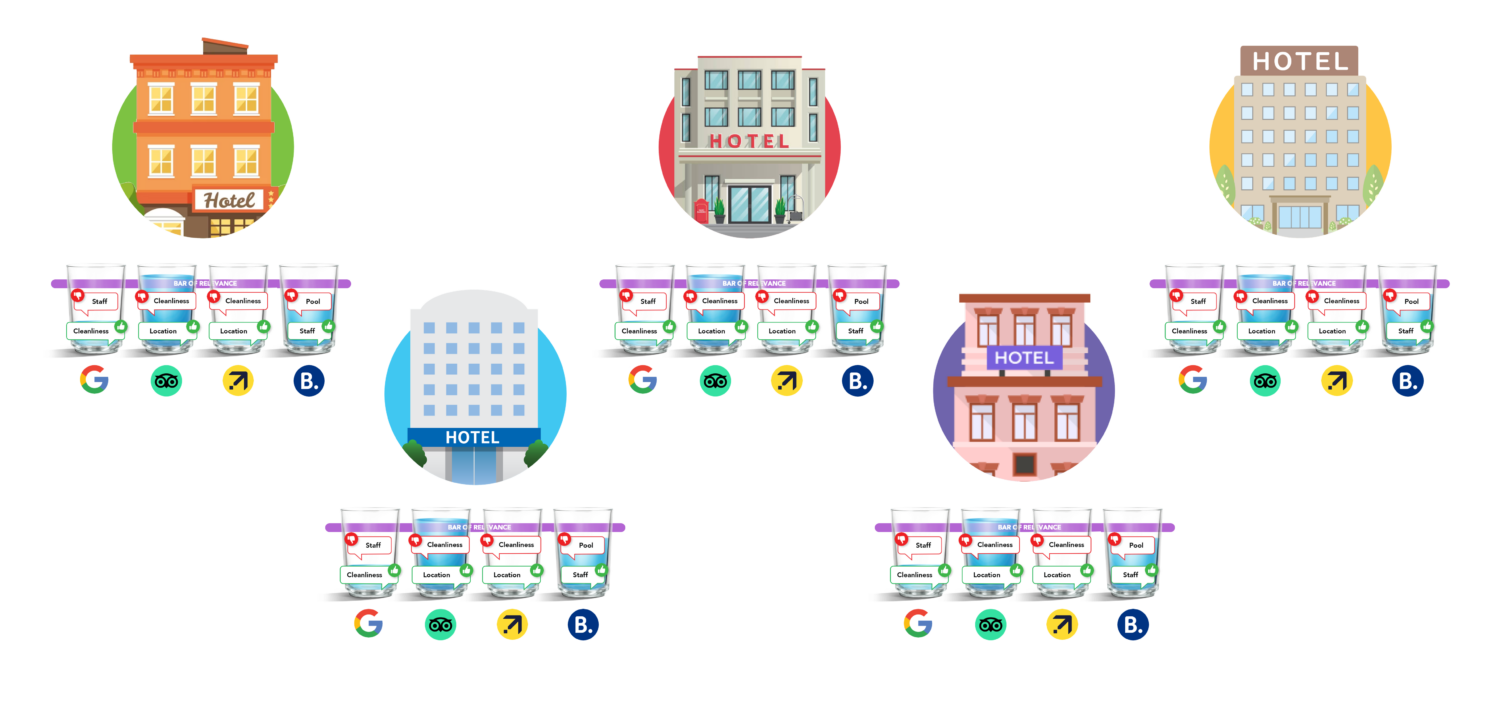
You may have a lot of relevant information and feedback on a particular booking site, but we know there are many other places where guests leave feedback and can book their stay. So, if you manage a portfolio of hotels, it can be tricky to determine the bar of relevance for each property.
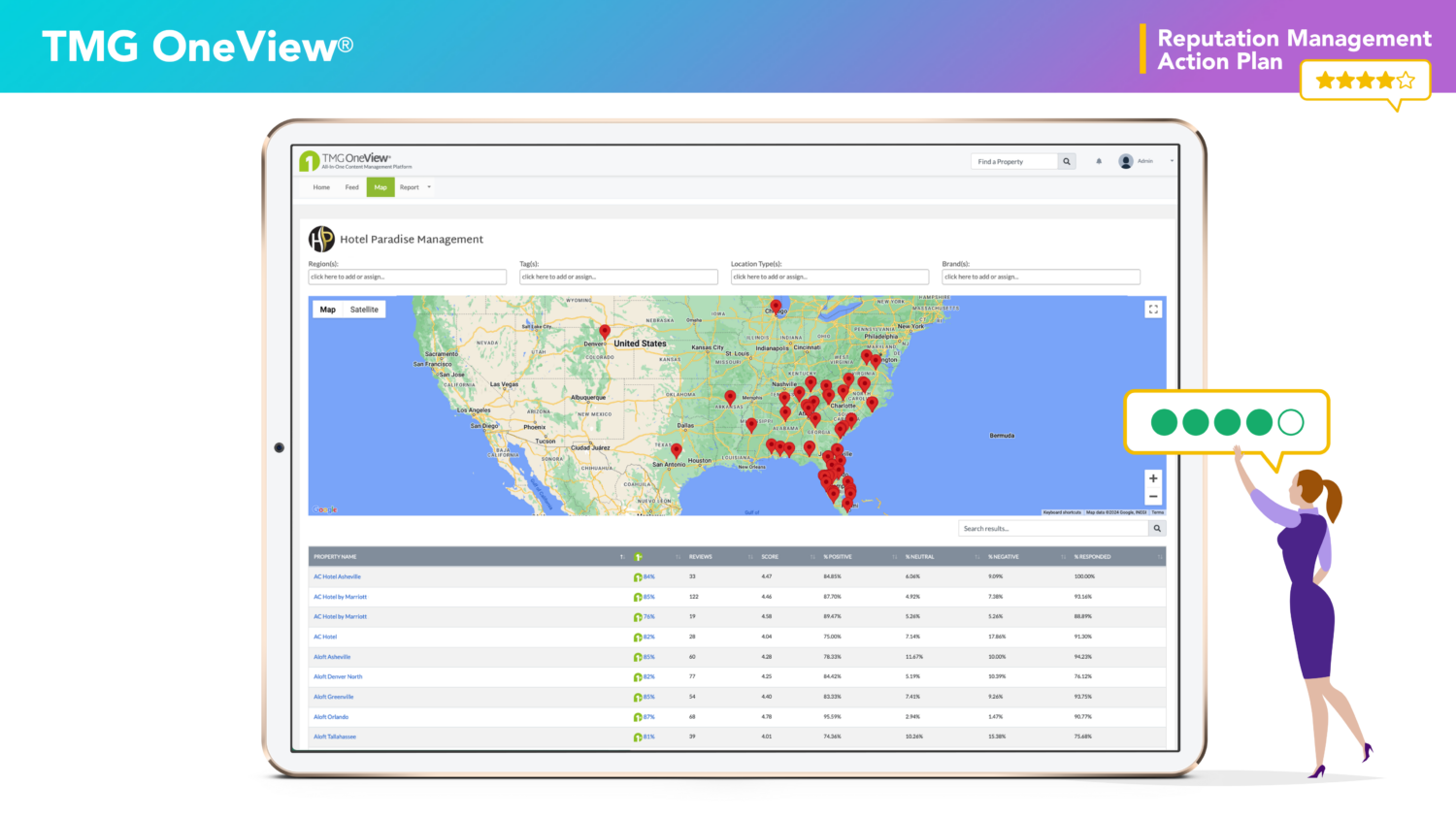
TMG provides a tool, OneView, where hoteliers can see exactly where you stand. You can look at your entire portfolio and discover how relevant your information is and how recent the reviews are. You can also view a first impression score, which takes all of these factors into account. This gives you a glimpse at how competitive you are at a moment’s notice when a traveler is looking to book.
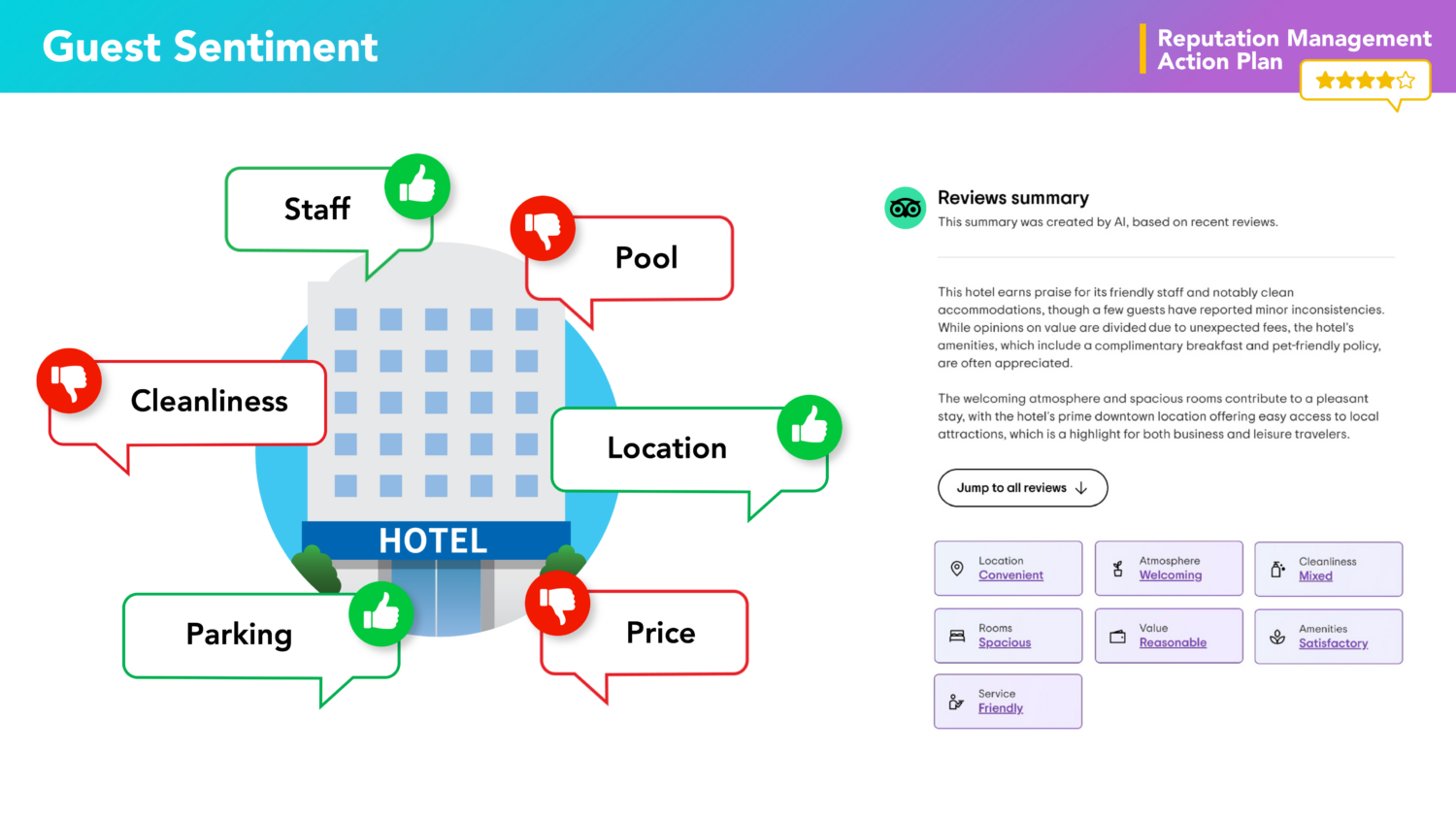
Guest sentiment is the roadmap to improving our guest experience. It is the various topics guests discuss in their reviews, whether or not they are one-offs or trends. The best way to describe guest sentiment is what’s happening right now and how review sites are using this data.
 TripAdvisor has announced its new “review summary” powered by AI. This tool will go in and utilize all of the guest sentiment data to give users an analysis and summary of what they can expect so they don’t have to read through all the reviews.
TripAdvisor has announced its new “review summary” powered by AI. This tool will go in and utilize all of the guest sentiment data to give users an analysis and summary of what they can expect so they don’t have to read through all the reviews.
Potential guests will look at a range of reviews from multiple properties to decide on the best place to stay overall. As humans, we want to know what the worst-case scenario could be, what a bad experience looks like, and how the hotel handled it.
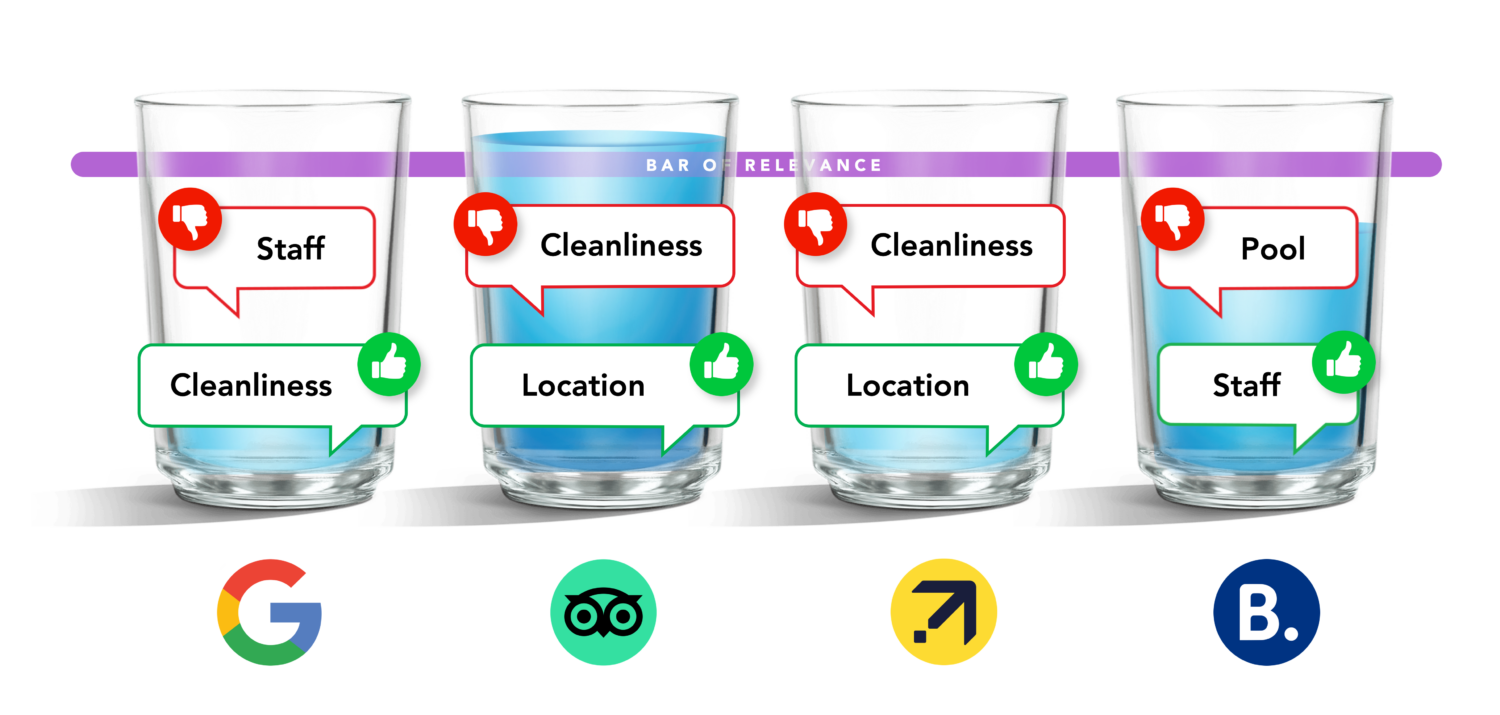
Sentiment can also vary across platforms. On one end, your property could look unclean, but on another one, the most recent review can talk about how clean it was. It is extremely important to keep an eye on this at all times. At any given moment, these guest sentiments can bubble up and have an impact on our bookings and conversions.
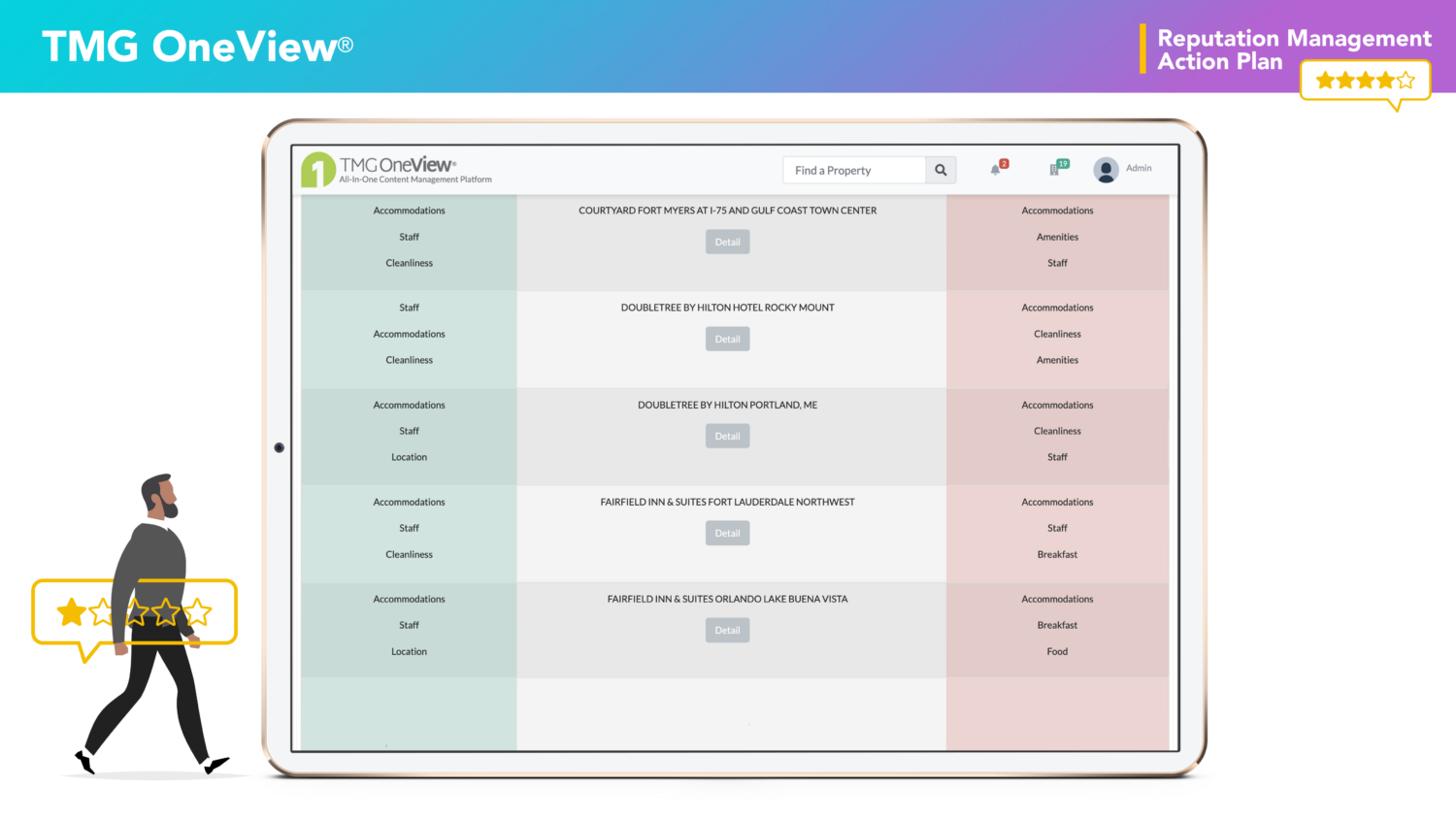
On TMG OneView, you can also view the trending topics from the reviews. You can view the issues being brought up along with the positives that are mentioned.
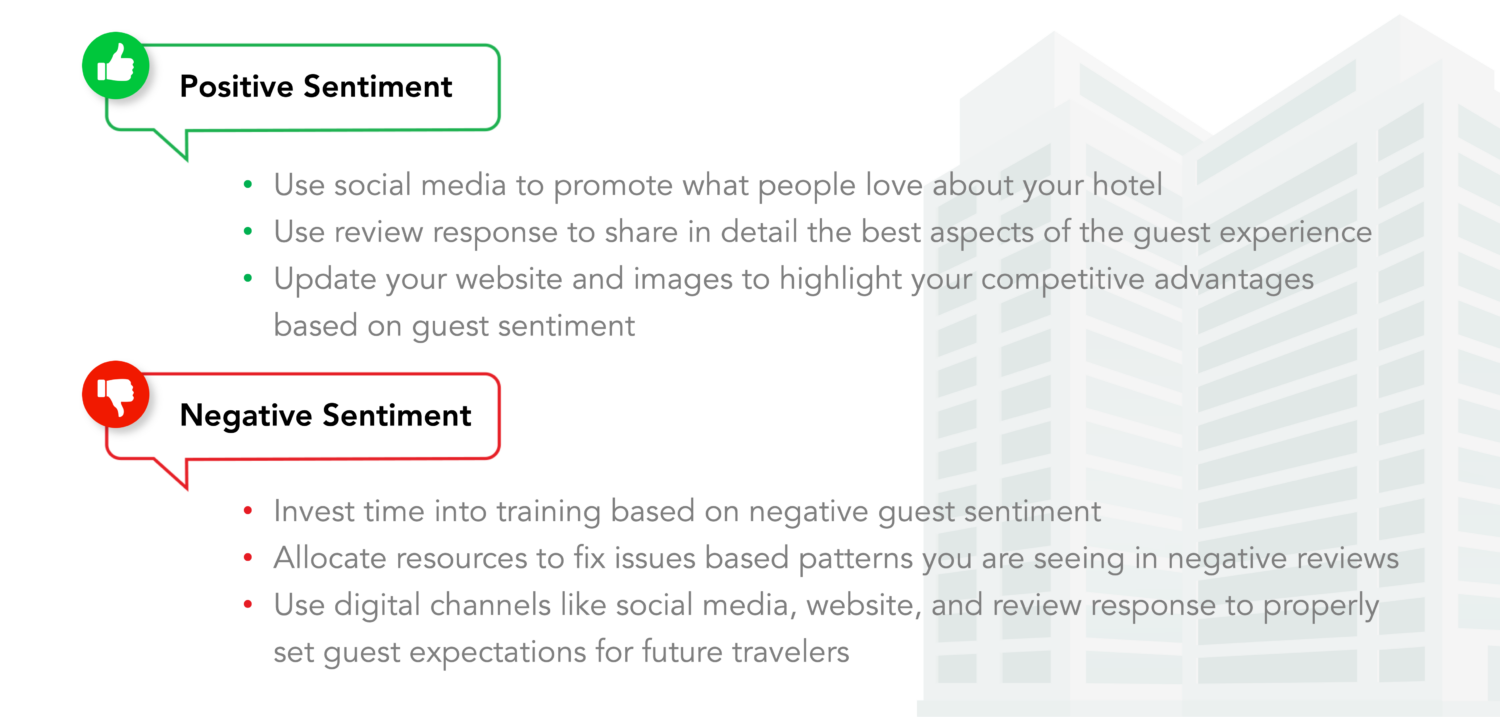
There are ways to get ahead of the negative sentiment. Use your social media to promote all of the things people love about your hotel. Post photos and videos of your great amenities, location, staff, etc. Use review responses to show the best aspects of the guest experience.
Negative sentiment is sometimes necessary to show hotels ways they can improve. You may need to invest in training and allocate resources to fix issues. You can also use your digital channels to properly set guest expectations for future travelers. Some things cannot be changed about your property, so being fully transparent is essential to avoiding negative reviews.
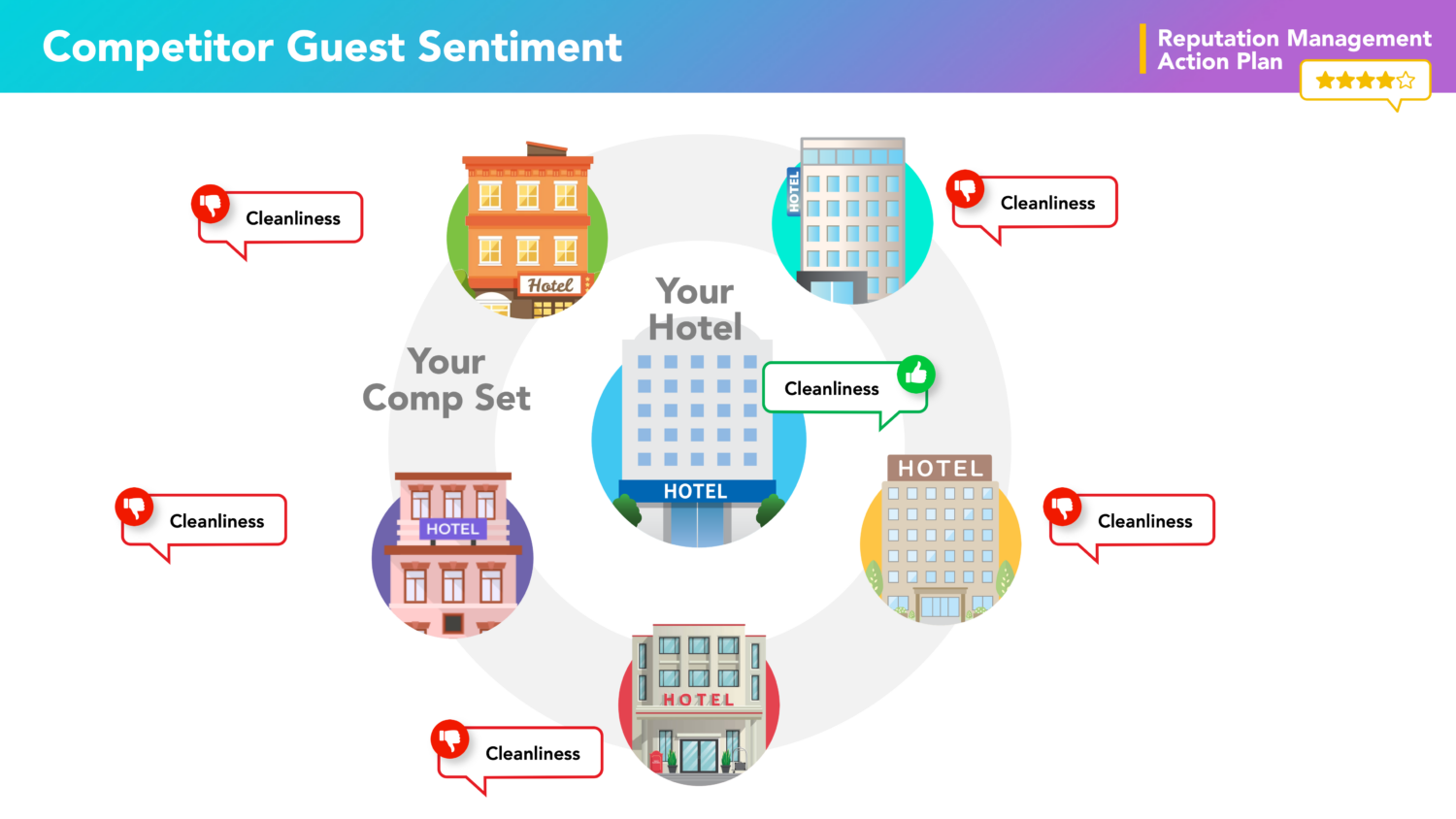
As hoteliers, we usually only pay attention to our own guest sentiment. It may be a benefit to look outside of your hotel because you are competing against other hotels in your market. If you notice that cleanliness is one of your positive sentiments but the properties in your area are experiencing negative sentiment, there are several things you can do to expose that. Highlight a housekeeper, talk about the cleaning protocols, or the measures you take for cleanliness.
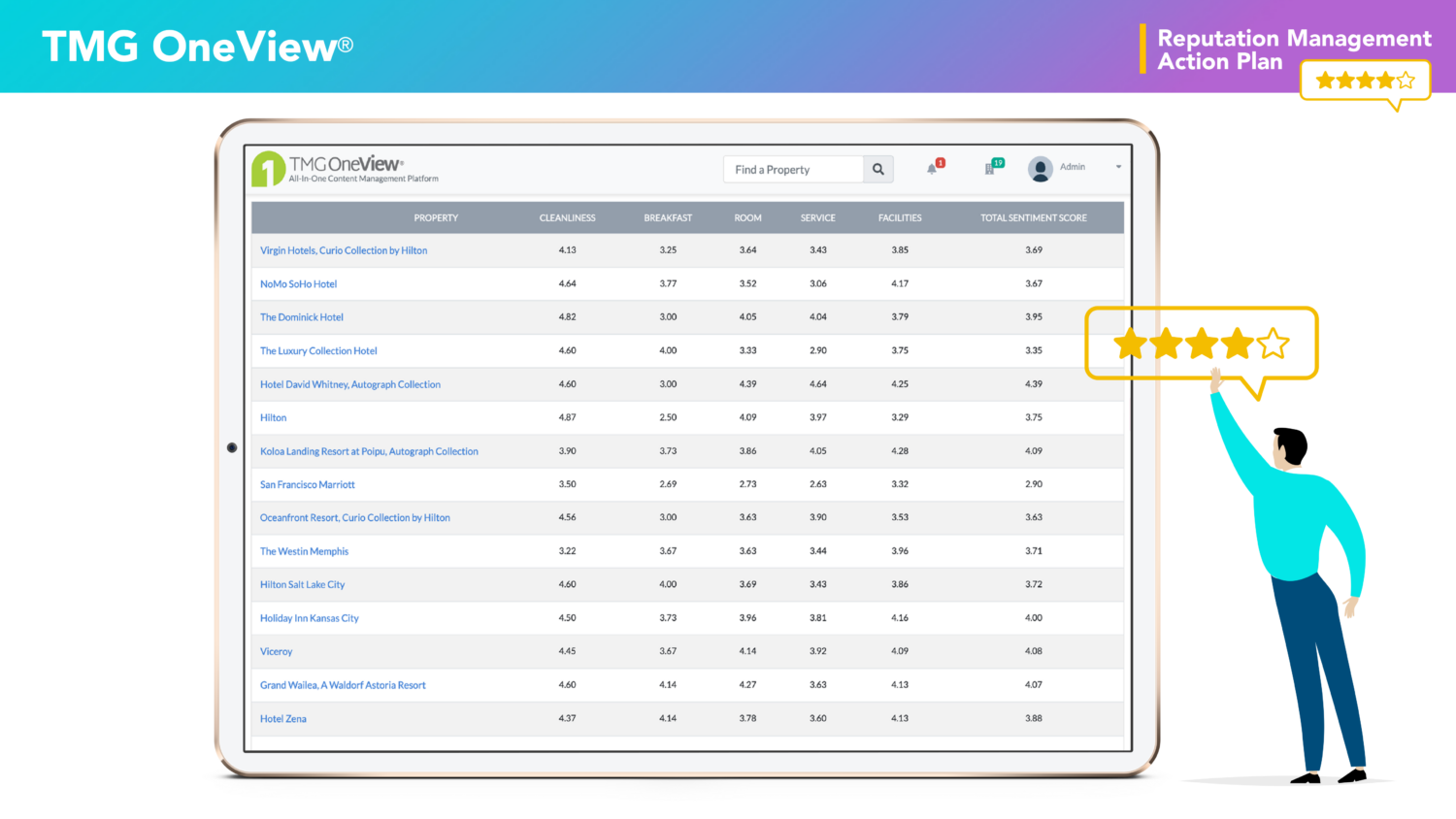
TMG OneView shows what scores are happening and what is trending across properties to see how you measure up.

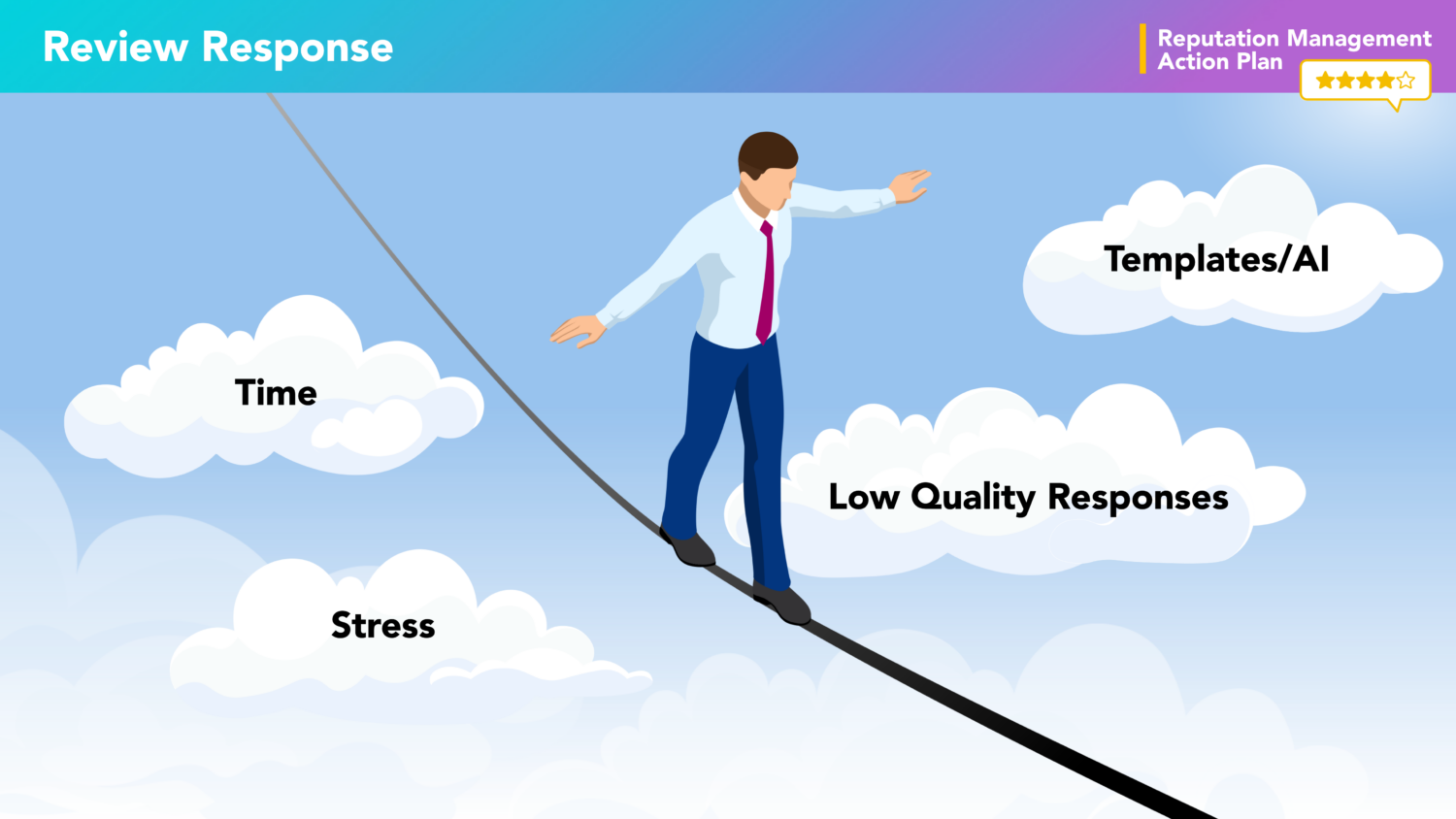
Should you respond to reviews? 71% of travelers appreciate when you do. And while it may be easy to manage during the slower travel seasons, there is an influx during the travel season. Just these past 30 days, our team has responded to over 40,000 guest reviews. 83% of ur partners felt less stressed knowing their reviews were taken care of by professionals.
Trying to respond to this amount of reviews and worrying about the day-to-day operations of your property can be stressful and result in poor service online and in person. With little time to respond to reviews, hoteliers are growing increasingly dependent on templates and AI to respond to their reviews. This can leave a negative last impression on the guest who left the original review.
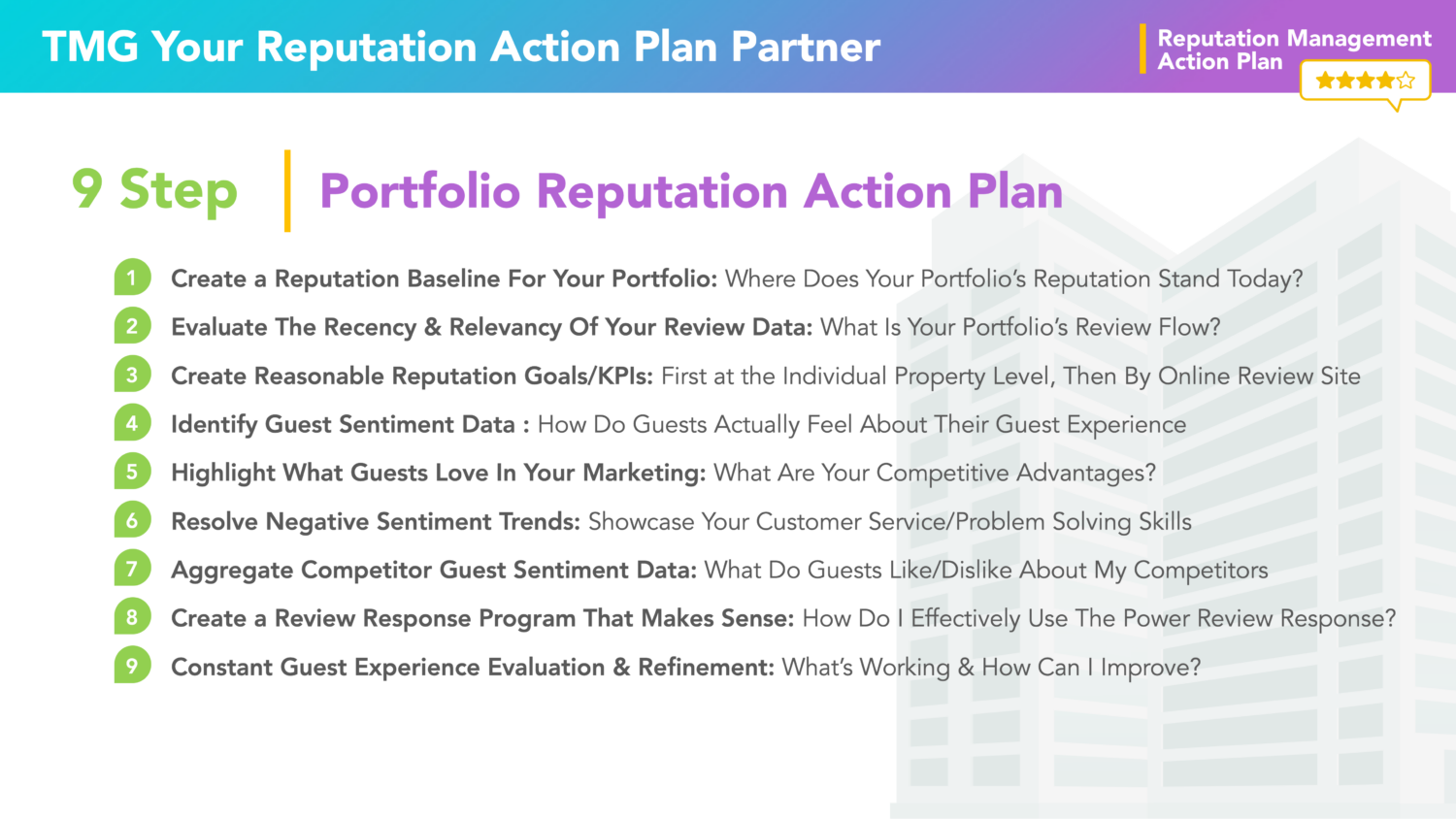
These 9 steps will help you create your portfolio reputation action plan. While this may seem like a lot, Travel Media Group is here to be your action plan partner! We will meet you at every step of the process to improve your online digital reputation.





0 Comments